Chat Control is in the final stretch – but it could be a marathon, not a sprint
With final negotiations on the controversial CSA Regulation underway, you’d be forgiven for thinking that our digital rights are out of the woods. However, even though the recently-agreed position of EU Member States is a cautiously optimistic step, we are still far from a final deal. Perhaps the most worrying issue that remains is the threat of age verification becoming mandatory across all digital methods of private communication – a hugely disproportionate limitation on our privacy and free speech.
Filter resources
-

Chat Control is in the final stretch – but it could be a marathon, not a sprint
With final negotiations on the controversial CSA Regulation underway, you’d be forgiven for thinking that our digital rights are out of the woods. However, even though the recently-agreed position of EU Member States is a cautiously optimistic step, we are still far from a final deal. Perhaps the most worrying issue that remains is the threat of age verification becoming mandatory across all digital methods of private communication – a hugely disproportionate limitation on our privacy and free speech.
Read more
-
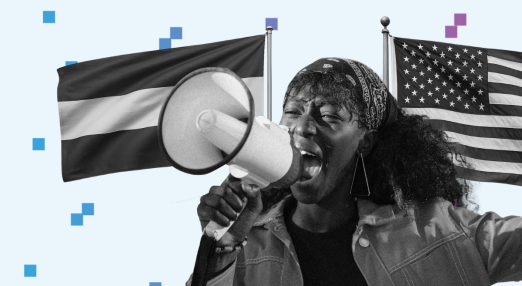
US pressure on the Digital Services Act in the Netherlands
On 3 February 2026, the United States House Committee on the Judiciary launched a report in which EDRi member Bits of Freedom and Justice for Prosperity, among others, are called "censorous NGOs". In response, Bits of Freedom and Justice for Prosperity are issuing the following statement.
Read more
-
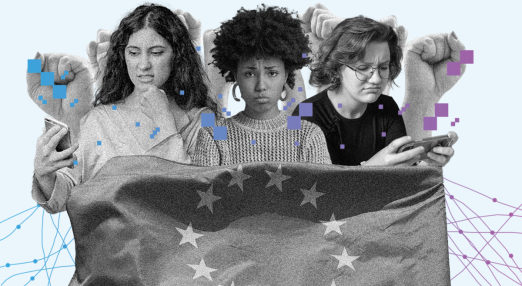
Reopening GDPR and ePrivacy through the Digital Omnibus: a risky path for EU digital rights
EDRi has assessed the Digital Omnibus proposals affecting the General Data Protection Regulation (GDPR) and the ePrivacy framework. While presented as simplification, the changes amount to deregulation in effect, weakening fundamental rights safeguards, increasing legal uncertainty, and advancing through a process that falls short of democratic lawmaking standards.
Read more
-
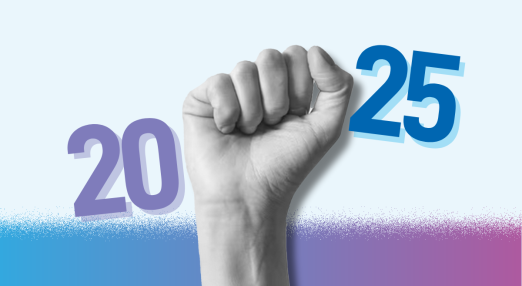
EDRi’s 2025 in review: we resisted, we persisted
As for most civil society organisations, 2025 was a tumultuous and challenging year for EDRi. Shifting political landscapes and shrinking civic space have made the work of civil society in Europe and around the world increasingly difficult for years . Yet we have nevertheless found many reasons to hope, celebrate, resist and persist.
Read more
-

How Danes je nov dan helped stop dangerous spyware in Slovenia
EDRi affiliate Danes je nov dan launched a multi-faceted campaign in response to a government proposal that would allow the Slovene Intelligence and Security Agency (SOVA) to use invasive spyware and mass surveillance tools under the guise of “national security”. By combining a satirical online tool with targeted advocacy towards lawmakers, their efforts helped generate critical pressure needed to stop the legislation from being adopted.
Read more
-

When data relate to us
The EDPS vs. Single Resolution Board judgment goes to the heart of the EU’s fundamental right to data protection, shaping how artificial intelligence, data spaces and so-called privacy-enhancing technologies (PETs) will be governed in practice. The ruling of the Court of Justice of the European Union (CJEU) arrives at a crucial time to reiterate what counts as personal data, reinforcing the importance of the protection that the GDPR was designed to guarantee.
Read more
-

Europe is dismantling its digital rights from within
The European Commission’s new Digital Omnibus is presented as simple “streamlining”, but in practice it dismantles key safeguards in the GDPR, ePrivacy rules and the AI Act. It would make access to device data easier, weaken limits on automated decision-making and lower protections against discriminatory AI.
Read more
-

Press Release: Commission’s Digital Omnibus is a major rollback of EU digital protections
Today the European Commission has published two Digital Omnibus proposals, reopening the EU’s core protections against harm in the digital age. This step risks dismantling the rules-based system that was hard-won over decades, endangering the very foundation of human rights and tech policy in the EU.
Read more
-

A Privacy Nightmarе: Understanding Spyware, a new book by SHARE Foundation
SHARE Foundation’s new book ‘A Privacy Nightmare: Understanding Spyware’ examines spyware through technical, legal, and practical lenses, offering a systemic understanding of its threats and reinforcing the call for a global ban.
Read more
-
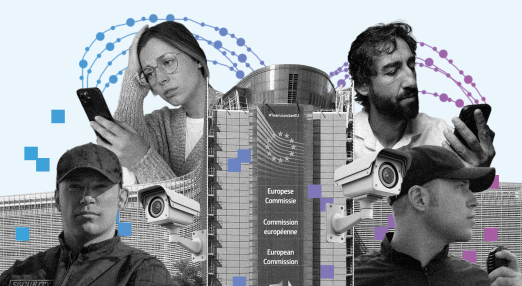
Deregulating digital rights: Why the EU’s war on ‘red tape’ should worry us all
The European Commission has made deregulation a top priority for the EU over the next four years. Under the banner of ‘simplifying’ EU rules, we risk seeing the entire digital rulebook – for which we have advocated for years – being stripped away. If the EU wants a healthy, competitive tech market that puts people at its center, then this deregulation push is not only bad for the protection of fundamental rights, but is also an act of self-sabotage which must be reversed.
Read more
-
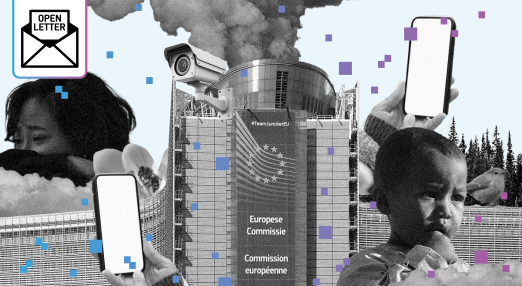
Open Letter: The EU weakens the rules that safeguard people and the environment
470 civil society society organisations, trade unions and public interest groups are making it clear to European Commission President Ursula von der Leyen, European Commissioners and EU Member States that our rights, planet, health and justice are not for sale. They call on EU lawmakers to protect and promote the rights enshrined in the EU Charter and international human rights law, instead of endangering them.
Read more
-

Denmark wants to break the Council deadlock on the CSA Regulation, but are they genuinely trying?
Denmark made the widely-criticised CSA Regulation a priority on the very first day of their Council presidency, but show little willingness to actually find a compromise that will break the three-year long deadlock on this law. The Danish text recycles previous failed attempts and does nothing to assuage the valid concerns about mass surveillance and encryption. Not only is Denmark unlikely to be able to broker a deal, it also stands in the way of EU countries finding an alternative, meaningful, rights-respecting solution to tackling CSA online.
Read more
